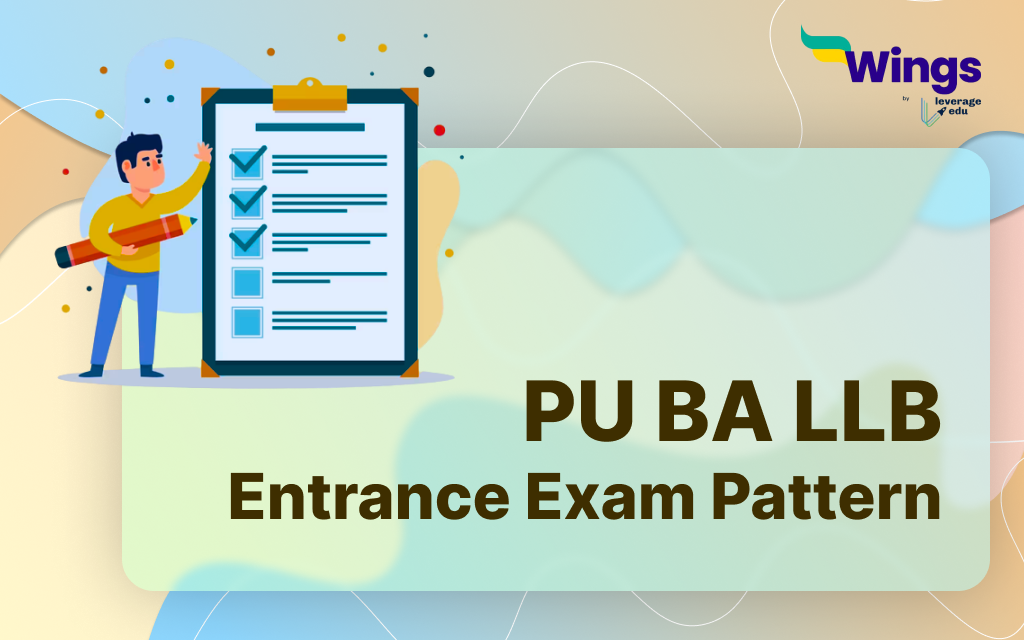PU BA LLB Entrance Exam Pattern: Candidates who are planning to apply for this famous law entrance exam must be eager to know about the exam pattern. As the Panjab University or PU has released the notification for this exam, applicants can find PU BA LLB Entrance Exam Pattern and its instructions in the notification easily.
To help the candidates, we have covered major information related to the exam pattern. It contains details of question pattern, subject-wise weightage, duration and mode of exam. Also, do check out the table mentioned below.
| Particulars | Details |
| Exam Name | PU BA LLB Exam |
| Conducting Body | Panjab University |
| Exam Mode | Offline |
| Exam Frequency | Once a year |
| Exam Medium | Hindi, Punjabi, English |
| Exam Duration | 1 Hour 30 minutes |
| Number of Questions | 100 Questions |
| Website | Official Website |
Contents
Must Read: Law Entrance Exams: India and Abroad
PU BA LLB 2023 Exam Pattern
While preparing for this law exam, applicants should have knowledge about the PU BA LLB 2023 exam pattern. It will help you to create a preparation strategy. As per the official announcement, all the questions will be in MCQ format. Candidates need to choose one correct answer from the given 4 options.
Also, they need to take care of the negative marking scheme. Their score will be deducted for answering incorrectly. The table given below has info about it.
The candidates who are appearing for PU BA LLB 2023 Entrance Exam have to understand the exam pattern. The PU BA LLB Entrance Exam Pattern will help the students to know how they have to prepare for the whole exam. The exam pattern for PU BA LLB 2023 is mentioned in the below table:
| Features | Details |
| Type of Questions | Multiple Choice Questions |
| Total Subjects | Four |
| Marking Scheme |
|
| Total Marks | 100 marks |
| Language | Hindi, English and Punjabi |
| Exam Timing | 10 to 11:30 AM |
| Exam Mode | Offline |
PU BA LLB Entrance Exam Syllabus
The syllabus of PU BA LLB 2023 gives a clear idea of the sections and the topics that are required to be covered for the preparation of the exam. In each section of the exam, 1 mark will be allotted to each question and the total number of marks is 100. The syllabus of PU BA LLB 2023 is mentioned in the below table:
Subjects | Topics |
| |
English |
|
|
General Knowledge and Current Affairs |
|
Legal Aptitude |
|
Section Wise Weightage
Panjab University (PU) offers BA LLB courses for undergraduate students who want to make their career in law. Below mentioned is the section-wise weightage of PU BA LLB 2023. Candidates can devote their exam for the preparation of exams accordingly:
| Subjects | Total Marks | Total Questions |
| English | 10 Marks | 10 Questions |
| Mental Ability | 10 Marks | 10 Questions |
| Legal Aptitude | 20 Marks | 20 Questions |
| General Knowledge and Current Affairs | 60 Marks | 60 Questions |
| Total | 100 Marks | 100 Questions |
PU BA LLB Preparation Tips
The candidates who are appearing for PU BA LLB Entrance Exam must prepare according to the examination happening. Below mentioned are the preparation tips for the students:
- The candidates must make a study plan by this the candidates can give time to each subject.
- The candidates must make a habit of reading the newspaper daily.
- The candidates must practice sample question papers to understand the exam pattern.
- The candidate must give the mock test to check their preparations and the difficulty level of the exam.
FAQs
The Candidates applying for the PU BA LLB Entrance Exam must be careful in attempting questions as for each incorrect answer 0.25 marks will be deducted.
All the sections are equally important in the PU BA LLB Entrance exam but the General Knowledge and Current affairs section hold 60% weightage so it is considered as the important section in the entrance exam.
The candidate who has secured 50% in their 12th board examination is eligible to apply for the PU BA LLB entrance exam. The university also offers 5% of relaxation to the reserved categories.
For more updates on such topics, keep an eye on the official website of Leverage Edu Indian Exams page, and don’t forget to follow us on Facebook, Instagram, LinkedIn, and Twitter.


 One app for all your study abroad needs
One app for all your study abroad needs












 60,000+ students trusted us with their dreams. Take the first step today!
60,000+ students trusted us with their dreams. Take the first step today!